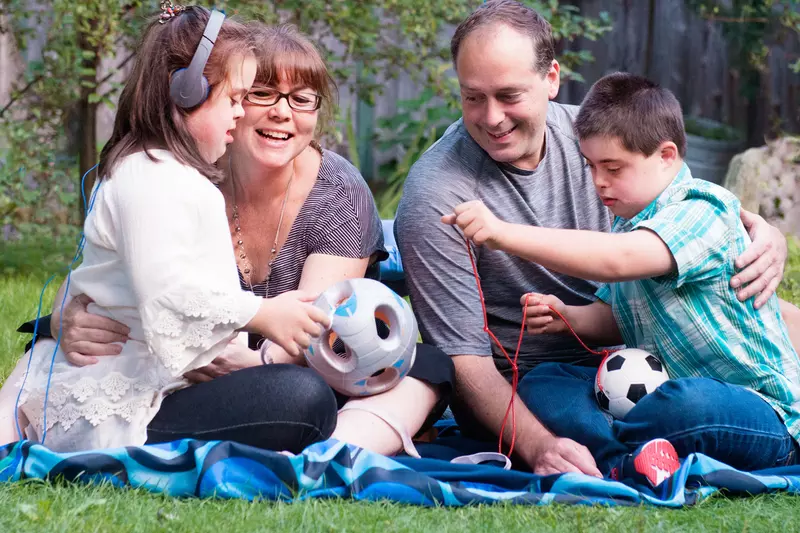- AdventHealth

Creating fun, wholesome life experiences and making memorable moments for your child is an important part of being a parent, but planning and enjoying a day out with your autistic child, or a child with sensory disorders, can have unique challenges. Whether you want to take them to the park, to a restaurant or to a birthday party, these experiences can be difficult for your child for many reasons.
Fortunately, many establishments recognize that not all children are alike and have prioritized inclusion to help all children have positive experiences. With help from the dedicated team of specialists at AdventHealth Sports Medicine and Rehabilitation who are specially trained in therapies for children with autism, your everyday activities can be happier for the whole family. So, wherever your plans take you, plan ahead to help your child with special needs feel whole throughout their day.
Therapies to Improve Everyday Activities
Physical Therapy
Children with Autism can have gross motor challenges which make meeting developmental milestones such as crawling, walking, and jumping difficult. Our highly-trained physical therapists can help your child learn how to safely navigate their natural environment and can dramatically change their day-to-day experiences and increase their quality of life.
If your child has problems with balance or is toe walking, our physical therapists can work on their fine motor deficits, so they don’t get tired or sore after walking for a few hours. These play-based exercises will not only correct your child’s gait but entertain them at the same time.
Occupational Therapy
Autistic children commonly exhibit sensory difficulties and challenges that affect the activities of their daily lives such as dressing, bathing, and functional play skills. Occupational Therapy can help promote self-regulation skills to further improve attention for them to interact appropriately in their community and in new environments.
Food and Feeding Therapy
Children on the autism spectrum commonly experience feeding difficulties, such as an extreme or limited variety of foods they’ll eat, aversions to certain textures and tastes and other preferences that can make meal times very challenging. Feeding therapy can aid in advancing age appropriate food intake and variety for healthy growth and proper nutrition.
If your child is averse to eating certain foods, it can make it difficult to find foods they’re happy to eat when you’re out and about. Our dedicated team can help expand your child’s food repertoire and make meal times easier when you’re on the road or at a restaurant.
Speech and Language Therapy
Children with sensory disorders or children on the autism spectrum commonly have communication deficits affecting their ability to communicate and interact with their family and environment. Our speech therapy team work to increase your child’s functional communication skills through a total communication approach. Our world-class team of specialists utilize pictures, Augmentative and Alternative communication (AAC), as well as verbal communication to help your child learn to communicate more fluidly.
Prepare Your Child
Children on the autism spectrum or those with sensory disorders can struggle whenever their schedule changes. Talk with your child about their upcoming day out and get him or her ready by sharing what can be expected.
Make a Photobook of Activities to Enjoy Together
Print photos from the internet and staple pages together for an easy resource your child can look through before going out. You can take advantage of walkthrough social stories available on sites like YouTube or make your own. These visual guides walk children through activities and environments to showcase what to expect once they get there.
Look at a Map Together and Plan the Day
Ask your child what places you should visit, what they’d like to do and plan the day’s schedule.
Prepare a Well-Stocked Bag
Be sure to add sunblock, a hat, sunglasses, noise-cancelling headphones, a change of clothes, snacks and any other medical or support items your child may need.
Set Expectations With the Adults Joining You
Go over the plan with your partner, grandparents or any family members joining you on the trip. Be clear about what they can expect — from how long you may stay out and what activities you’ll enjoy, to how they can support you and your child, and whether you’ll need to do separate activities during your event.
Be thoughtful about what your child needs to create wonderful, happy memories. Focus on what works best for you to customize your experience, and to support both your child and the entire family.
To learn more about the services available to support you or to speak with one of our highly-trained pediatric specialists, please visit our website or call Call407-303-8080.



